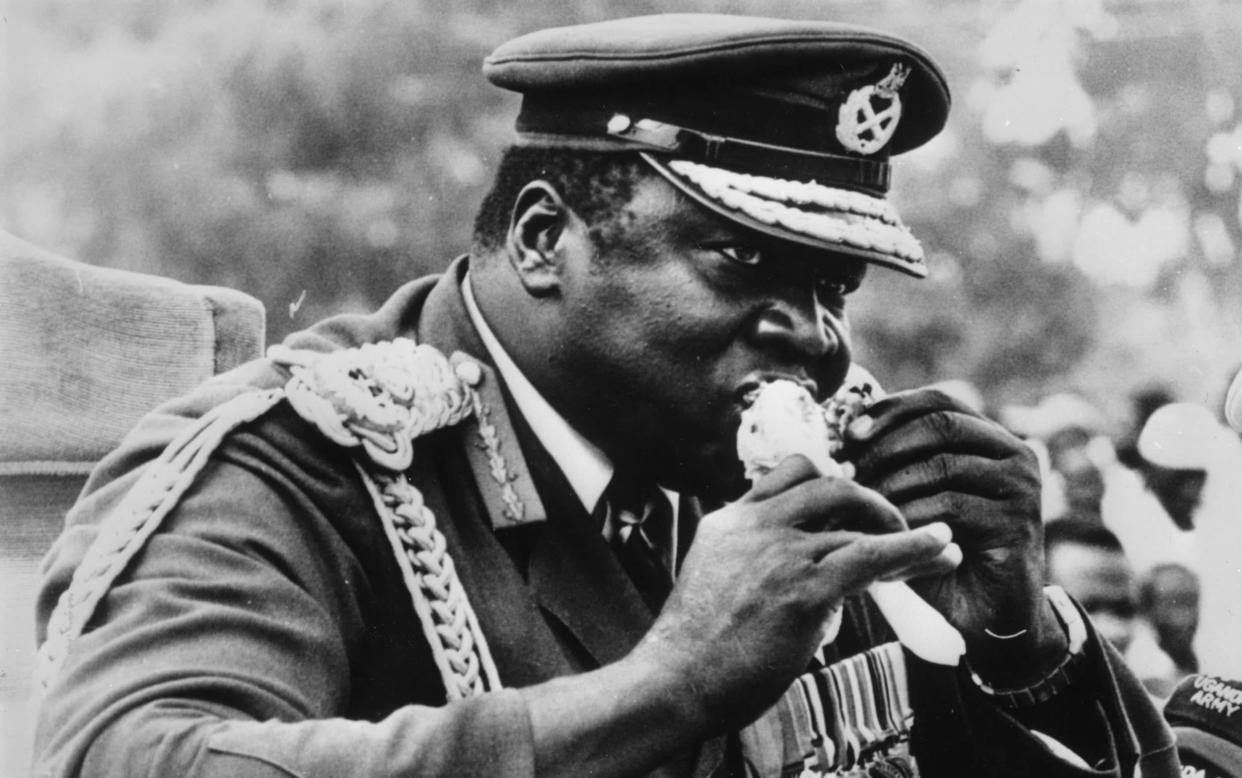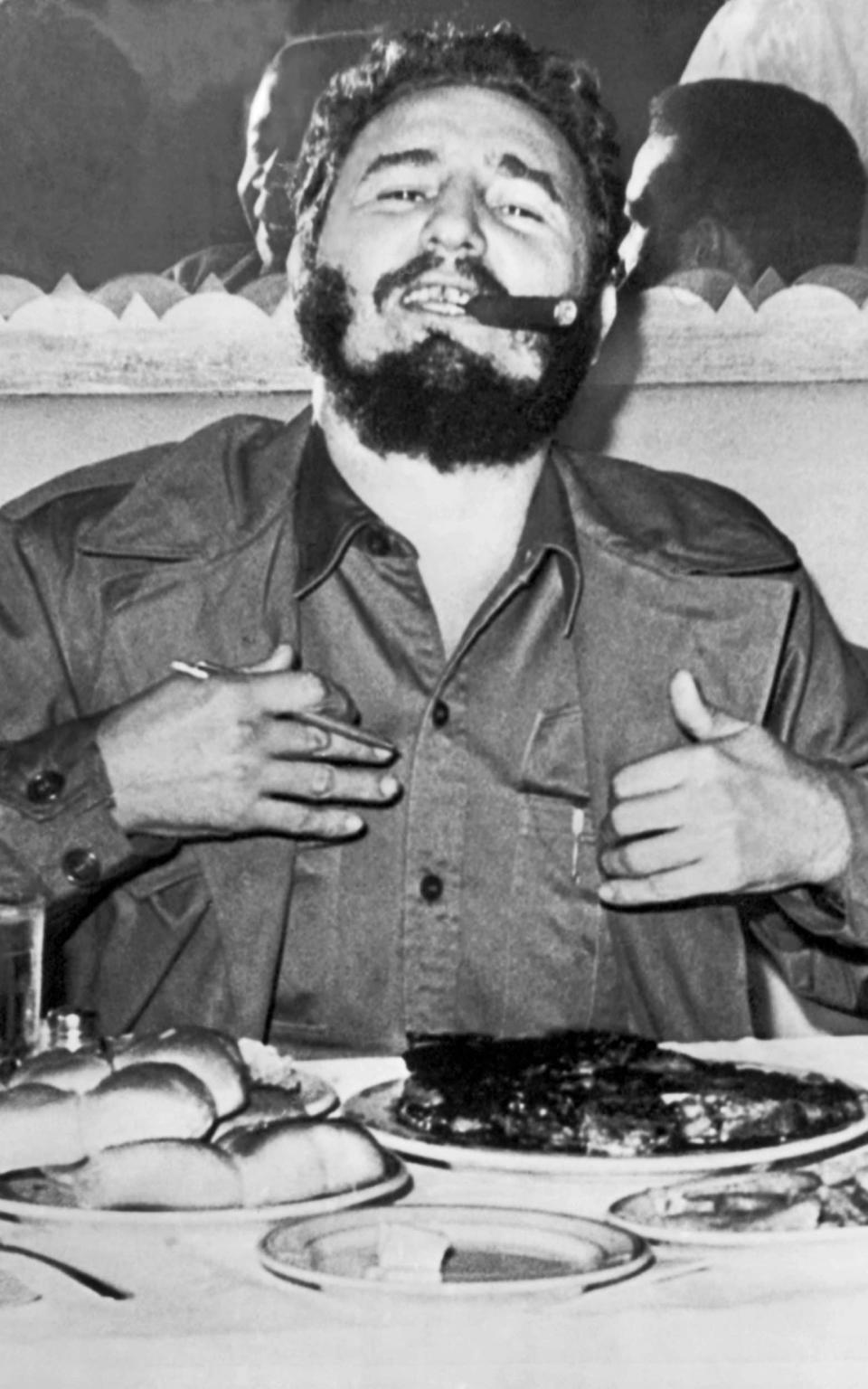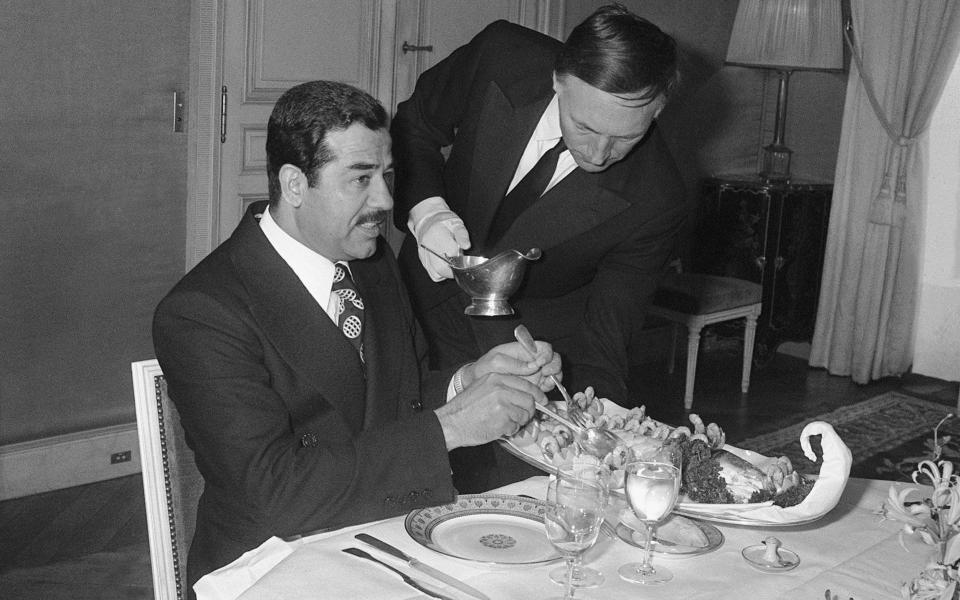How to Feed a Dictator by Witold Szablowski review: riveting memoirs of 20th-century tyrants' cooks

If Saddam Hussein didn’t like his dinner, he demanded compensation from the cook. “This food is inedible,” he’d say. “You’ve got to pay 50 dinars.” Sometimes Saddam did the cooking himself, and then it really was inedible. He liked to be filmed making rice for his soldiers but would absent-mindedly sprinkle a whole kilo of salt into the pot, which they had to eat. For a joke, he put an entire bottle of Tabasco into some koftas for his inner circle, forcing them to run around clutching their throats, feigning delight.
As his chef Abu Ali delicately puts it in How to Feed a Dictator, “You’re not going to tell the president you don’t like the food he has made.” It took the Polish journalist Witold Szablowski 12 months of coaxing to persuade Ali to go on the record for his study of five 20th-century tyrants (Enver Hoxha, Idi Amin, Fidel Castro and Pol Pot are the others) through the eyes of their cooks. The result is riveting, and utterly convinces in its thesis that “20th-century history as seen from the kitchen” is worth our attention.
As Szablowski, a former chef himself, puts it, cooks have to be “crafty and cunning” diplomats, “poets, physicists, doctors, psychologists, and mathematicians all in one”. Since their lives were dependent on a faultless grasp of their masters’ moods and appetites, these cooks knew the tyrants, quite literally, inside out. Through their intimate observations, the dictators are reanimated, transformed from creatures of mythology back into flesh and blood.
We learn how the dairy-obsessed Castro, who ate 15 to 20 scoops of ice cream a day, managed to breed a miraculously productive cow called Ubre Blanca (“White Udder”), whose record-breaking daily milkings (up to 100 litres) were solemnly circulated in Granma, the Cuban equivalent of Pravda; how Hoxha, a diabetic, had to be kept on a diet of 1,500 calories a day (sweetened by xylitol puddings), which left him dangerously bad-tempered; how Amin used to procure women for his cook Otonde Odera to sleep with: “It wasn’t exactly an order, and not exactly a joke [...] He sat and watched; he enjoyed watching other people getting intimate.”

The million-dollar question: did Amin eat his enemies? When Szablowski asks, Odera bursts into tears. “I never saw any meat of unfamiliar origin.”
It took Szablowski four years of hard gumshoe work to track down these survivors, now old and penniless, and win them over. It helped that he was not an “ideology tourist”, gawking at the totalitarian survivors as if they were specimens in a zoo. Castro’s chef Erasmo Hernandez confided in him because he was “a friend… from the same bloc of states”: “A Pole’s going to understand a Cuban quicker than an American.” Hoxha’s cook, who now runs a sort of Albanian Fawlty Towers hotel, was so frightened that he is known here only as Mr K.
The book has something unexpected in common with Szablowski’s 2018 Dancing Bears: True Stories of People Nostalgic for Life Under Tyranny. The semi-sadistic antics of Saddam, Hoxha et al in the realm of food may be news, but not a shock. What is surprising is how fondly these cooks look back on their service. Even if you dispense with Pol Pot’s party-line-toeing cook Yong Moeun (the least satisfying testimony in the book), who denies the Khmer Rouge leader hurt a fly, and adores the footballer Lionel Messi because he has “the same gentle smile”, the pattern remains.
“Working for Enver [Hoxha] gave me tremendous satisfaction,” says Mr K, even though he lived “in a constant state of fear”. Even after Saddam’s chef Ali had transferred to a hotel, he voluntarily spent his holidays making a year’s supply of dried beef – one and a half tons – for the dictator, who loved it. In Ali’s eyes, Saddam was “the only good person in the entire al-Tikriti family… I don’t know how he survived among them.”
All this tells you something about the interaction between love and power. As the book goes on, the cooks’ gratitude for the smallest gesture of appreciation from their terrifying masters, or merely the withholding of violence, begins to feel more and more like a portrait of an abusive marriage.

Faced with the unreliability and partiality of the cooks’ testaments, Szablowski is forced to intersperse them with an unvarnished history of each regime – and what the ordinary people in it ate. Imagining the thirsty Khmer insurgents drinking out of toilet bowls, or the starving Albanians boiling tree bark into soup, or the Cubans in the post-1991 “Special Period” substituting sugary water for food on every third day, viscerally transports us to an alien time, an alien place.
Szablowski doesn’t over-egg the contrast between the dictators’ full plates and the hunger they inflicted, but that hypocrisy is always humming in the background. He also reminds us that the totalitarians didn’t have a monopoly on perverting food into an instrument of terror.
The secret American bombing campaign of Cambodia was code-named Operation Menu: beginning with Breakfast, when 50 B-52 bombers dropped more than 2,000 tons of bombs, then Lunch, Snack, Dinner, Supper and Dessert, it killed at least 100,000 Cambodians.
How to Feed a Dictator is not without flaws. Some of the material is exceptionally juicy, some of it expendable gristle; the translation from the Polish has the odd hiccup; and the jumpy narration will get up some readers’ noses. But it’s a small price to pay for such memorable vignettes. I am grateful, for instance, to know Amin’s banquets featured whole roasted goat, which arrived at the table in a standing position with its beard stuck back on “as a finishing touch”, but I’m even more grateful that I didn’t have to be there.
How to Feed a Dictator by Witold Szablowski is translated Antonia Lloyd-Jones and published by Penguin at £14.99; ebook £9.49, audio available.
To order a copy for £12.99, call 0844 871 1514 or visit books.telegraph.co.uk

